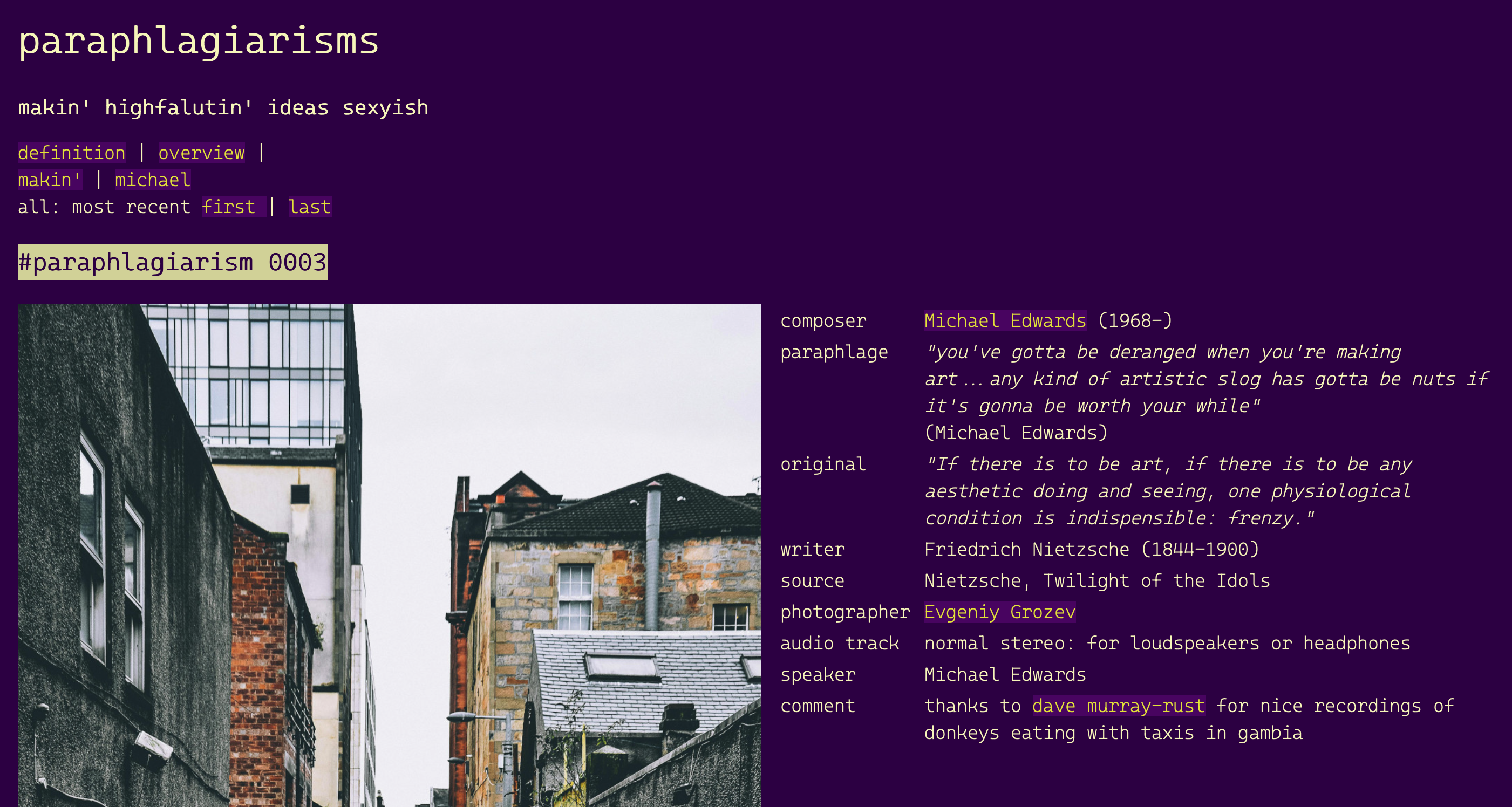Earlier this year I started a new net art project: paraphlagiarims. This title is a neologism: a portmanteau of paraphrase and plagiarise. A paraphlagiarism is tailored to internet / social media presentation and consists of a simple short video (actually, nothing more than a photo with audio waveforms) and a strong audio track, but, perhaps most importantly, i contains a paraphlage: a paraphrased/plagiarised quotation (usually from a well-known writer or artist) that represents an important or quirky view of art and/or music. Paraphrasing is performed in the manner of a student plagiarising big ideas in an essay or conversation. For example this, from Slavoj Žižek, from my first paraphlagiarism:
“One often hears that to understand a work of art one needs to know its historical context. Against this historicist commonplace, a Deleuzian counter-claim would be not only that too much of a historical context can blur the proper contact with a work of art (i.e., that to enact this contact one should abstract from the work’s context), but also that it is, rather, the work of art itself that provides a context enabling us to understand properly a given historical situation.”
might become, in the hands of the paraphlagiarisor, this paraphlage:
“to understand a work of art you’ve got to know its historical context…ah, yes, but a counter-claim to that would be that it’s the work of art itself that gives us the context to understand a given historical situation.”
The first three paraphlagiarims are on instagram. I should be releasing these elsewhere in the near future, along with examples by other artists.
More details, including how to make paraphlagiarisms.

Leave a Reply